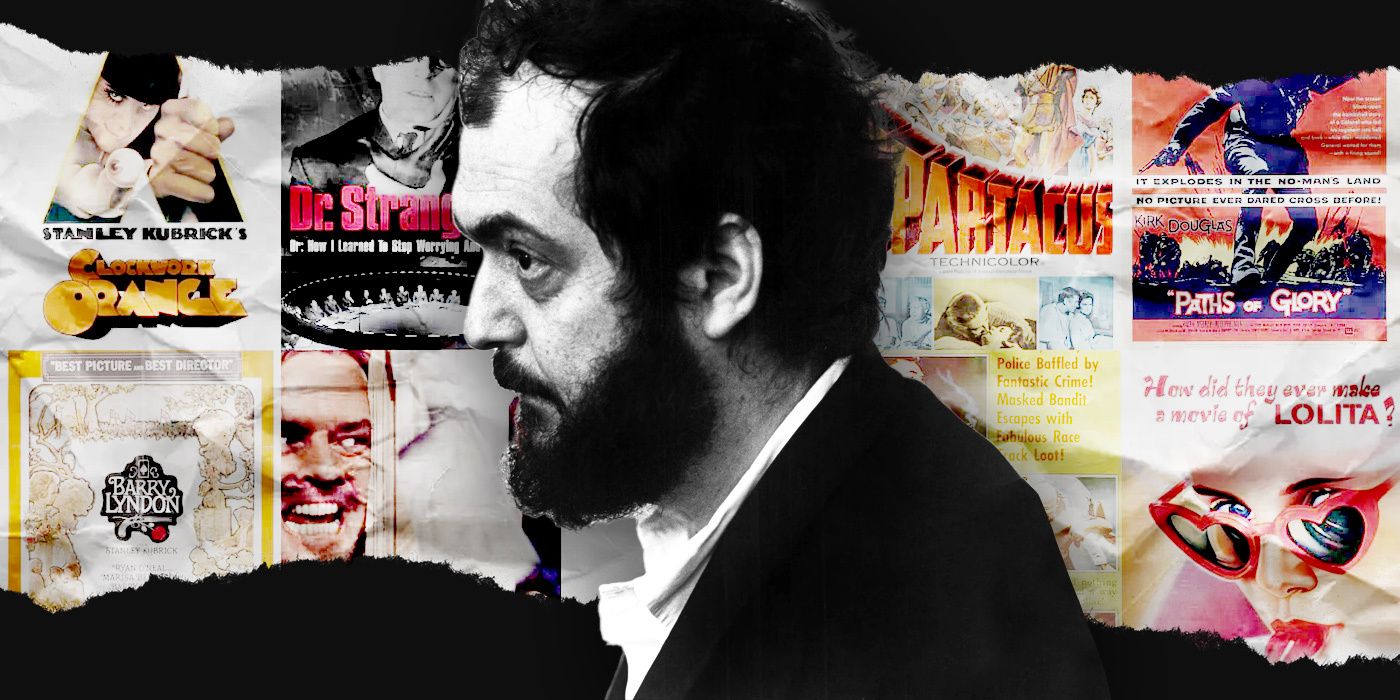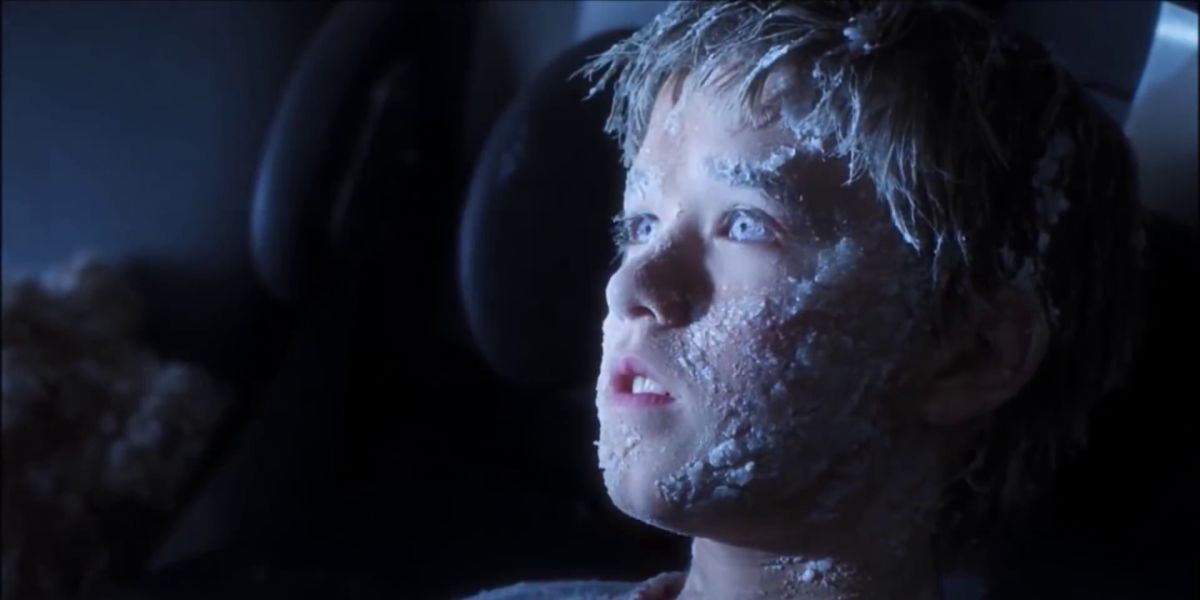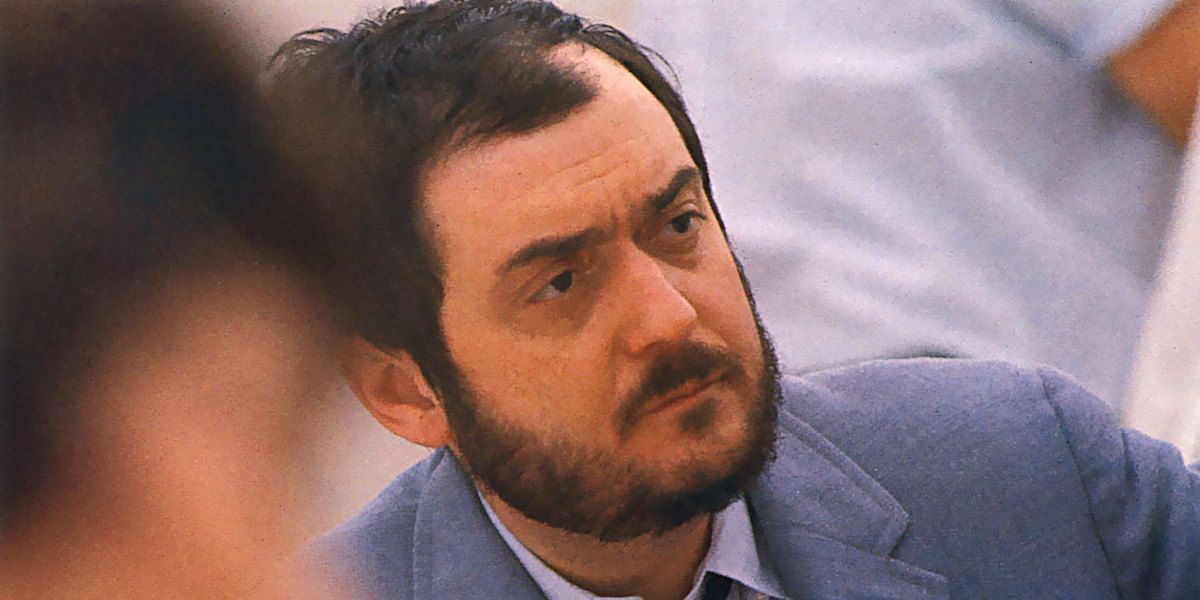At the Berlin Film Festival, Steven Spielberg announced that he is developing a miniseries on Napoleon Bonaparte. The series, still in the works, is based on a script from none other than Stanley Kubrick. The director is "mounting a large production" for a major premium cable channel (speculated to be HBO) in cooperation with Kubrick's former producing partner Jan Harlan and his widow Christiane Kubrick. For cinephiles, this is certainly noteworthy and exciting news. Kubrick was taken from the world too young, and any chance to experience his magic on screen, even if adapted second-hand, is worthy of attention. This announcement should also warrant caution, as Kubrick has numerous unrealized projects, ranging from basic concepts and ideas to completed screenplays, that other filmmakers have attempted to complete in the wake of his death. Considering how treacherous it is to fully enact his vision, the failure to get these projects off the ground floor is understandable.
Spielberg Was the First to Finish a Film That Kubrick Started
The strongest point of optimism lies in the fact that the only person who has completed a posthumous Kubrick film is the man who just announced a new Kubrick adaptation. In 2001, Spielberg wrote and directed A.I. Artificial Intelligence, a sci-fi rendition of Pinocchio that Kubrick granted carte blanche for him to finish while alive. Kubrick had planned to direct the film himself but stashed it away when he became convinced that no human child actor could authentically portray the main character, a robotic boy named David. He chose to wait for CGI technology to advance to the degree where no actor of flesh and blood was required. By the time Kubrick's sudden passing and the arrival of a generational child star in Haley Joel Osment occurred, Spielberg knew A.I. had to be completed, if only to honor the late Kubrick. Upon the film's release, it received lukewarm to positive reviews. Many viewed the final product as being tainted with Spielberg's forceful sentimentality, a trait that runs counterintuitive to the cold cynicism associated with Kubrick.
It's reputation, however, has improved with time. Among many online circles, A.I. has been reevaluated as a spellbinding masterpiece. Still, the initial reactions to A.I. encapsulate the difficulty of following through on Kubrick's concepts. The reverence for Kubrick's vision among film scholars and general audiences alike is taken very seriously. Any filmmaker, including ones with the aptitude of Spielberg, will be criticized at perhaps an unfair scale, whether it is due to their cheapened attempt to mimic Kubrick's style and tone or inserting their voice rather than staying true to the original text. Either way, it is a lose-lose situation when striving for mass approval.
Kubrick Has a Number of Unfinished Projects that Remain in Development
It seems fitting that Kubrick, a mythical-like figure that was often closed off from the rest of the world, would be tied to many unfinished films. The public can only be left to imagine what the Kubrickian spin could entail for a Napoleon biopic or Aryan Papers, the director's Holocaust story. After the release of 2001: A Space Odyssey in 1968, Kubrick immersed himself in researching the life and story of the complex French military commander and emperor of the late 18th/early 19th century. He watched movies and read books about Napoleon, and went as far as creating a card catalog of various factoids and intricacies during his reign. Yet, despite location scouting and the casting of Jack Nicholson as Napoleon, the film never went into production. The explanation behind the film's failure to launch is vague. A string of historical epics, including an adaptation of War and Peace and the Napoleon-related Waterloo in 1970, were financial flops, and likely curbed the enthusiasm of studios releasing another ambitious project like a Kubrick Napoleon biopic. Although, the director's extensive research was not squandered time, as he implemented his learned resources when crafting Barry Lyndon.
What could have amounted to his most ambitious and daring film to date, Kubrick also set his eyes on directing a story set in the harrowing time of the Holocaust. Aryan Papers, an adaptation of Wartime Lies, a novel by Louis Begley, would have examined the genocide against the Jewish population in the Nazi regime from the perspective of a boy and his aunt while in hiding. The connection to the text is evident. Kubrick would be drawn to the essence of the Holocaust as the closest thing mankind will ever reach to a man-made hell. The likes of Julia Roberts and Uma Thurman were considered by Kubrick to play the aunt role. Similar to the fizzled-out momentum of Napoleon, Arayan Papers never came to light. To garner creative freedom from studios, the director strived to put his films in the best position for financial success. This goes against the constant myth and legend-making of Kubrick as the hermetic artist who viewed the world with antipathy, as in the wake of the massive success of Schindler's List, he found no financial viability for the project.
As a devoted listener to BBC Radio, Kubrick heard an audio serial drama, Shadow on the Sun, and was immediately drawn to adapt it for the screen. The story of a meteorite crash landing on Earth and the virus it spreads on impact never acquired much momentum, despite purchasing the screen rights from the program's writer, Gavin Blakeney. The list of unreleased screenplays and spec scripts in Kubrick's possession, some of which were discovered postmortem, is endless. All of these would have been fascinating realms for the director to immerse himself in, including a pulpy noir (Lunatic at Large), a story of a minister-turned-safecracker (I Stole 16 Million Dollars), a gothic drama (Flowers in the Attic), and a character drama set in the last days of World War II (The German Lieutenant). There are multitudes of explanations regarding Kubrick's abandonment of these projects. His unrealized films play into the mystery of Kubrick's brand of filmmaking and personal identity.
Without question, the unfinished Kubrick projects most coveted by other filmmakers are his most fleshed out -- Napoleon and Aryan Papers. This past month was not the first time that Spielberg announced that he would be taking the helm of completing his vision of Napoleon. The news of him adapting Kubrick's script into a miniseries never took off when initially announced 10 years ago. Most recently, Cary Joji Fukunaga was commissioned by HBO to direct a miniseries sourced from Kubrick's Napoleon. While no progress of the series' production has come to light, Fukunaga stated in 2021 that it is indeed "happening." As for Aryan Papers, Jan Harlan expressed a desire in 2009 to complete the film with Ang Lee in mind to direct. Still to this day, Luca Guadagnino hopes to earn the chance to direct an adaptation of Wartime Lies, the inspiration for Aryan Papers.
The Difficulties of Adapting Kubrick
Despite what their hearts desire, directors would most likely be better suited to never touching anything that Stanley Kubrick ever put his hands on. Even with the understanding that the archetype of Kubrick as a closed-off hermit from society is overblown, the director had a unique interpretation of the world and the construct of the film medium. Of course, this can be attributed to any filmmaker, but Kubrick's specific visual and thematic language has inspired passionate fanfare among the film community and the public at large. For some, a separate voice realizing Kubrick's vision hinges on sacrilege, which would cause Spielberg's Napoleon miniseries or Guadagnino's Aryan Papers adaptation to meet unreasonable expectations. The opaque nature of his films presents the greatest challenge in adaptation. There is a reason why feature-length documentaries are made to reckon with the meanings behind his texts. In effect, the process of unlocking Kubrick's mind when adapting his ideas will most likely create a film or miniseries that is overwhelming for audience consumption and get lost in the weeds of precisely capturing his original vision. So, in the end, if there is any perspective in Hollywood, completing Kubrick's unrealized projects will be viewed with cautious skepticism. However, perhaps a greater lesson to follow, considering that he has accomplished the feat before, would be to never doubt Steven Spielberg.



